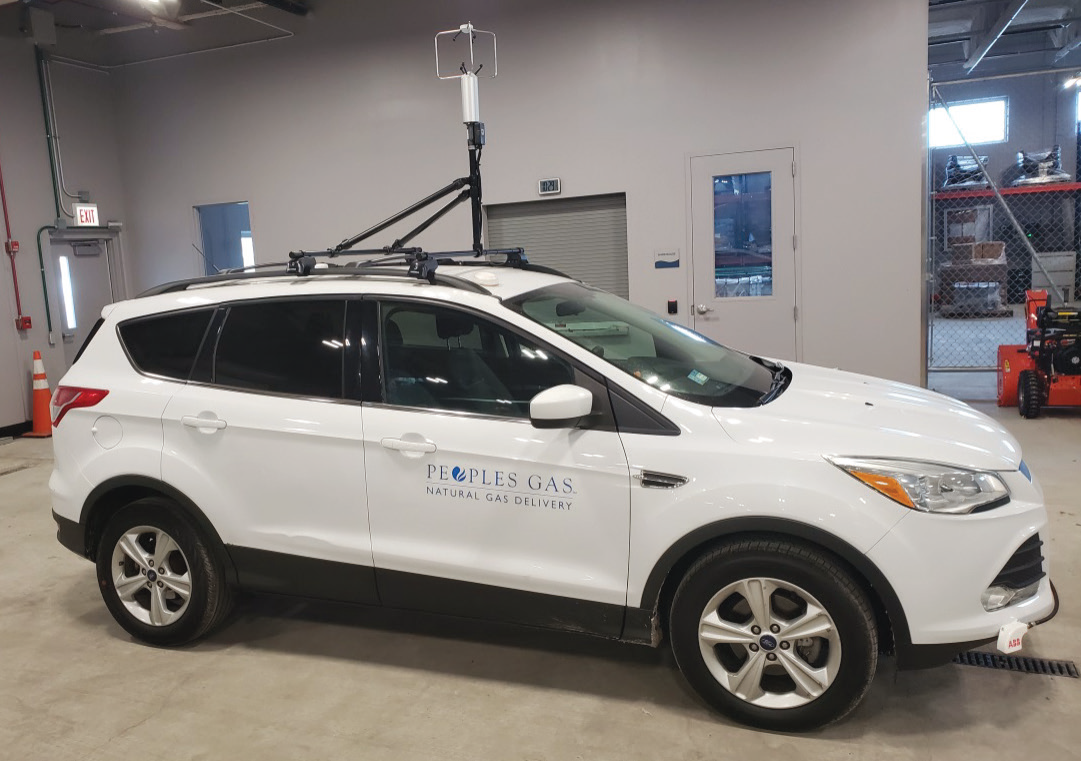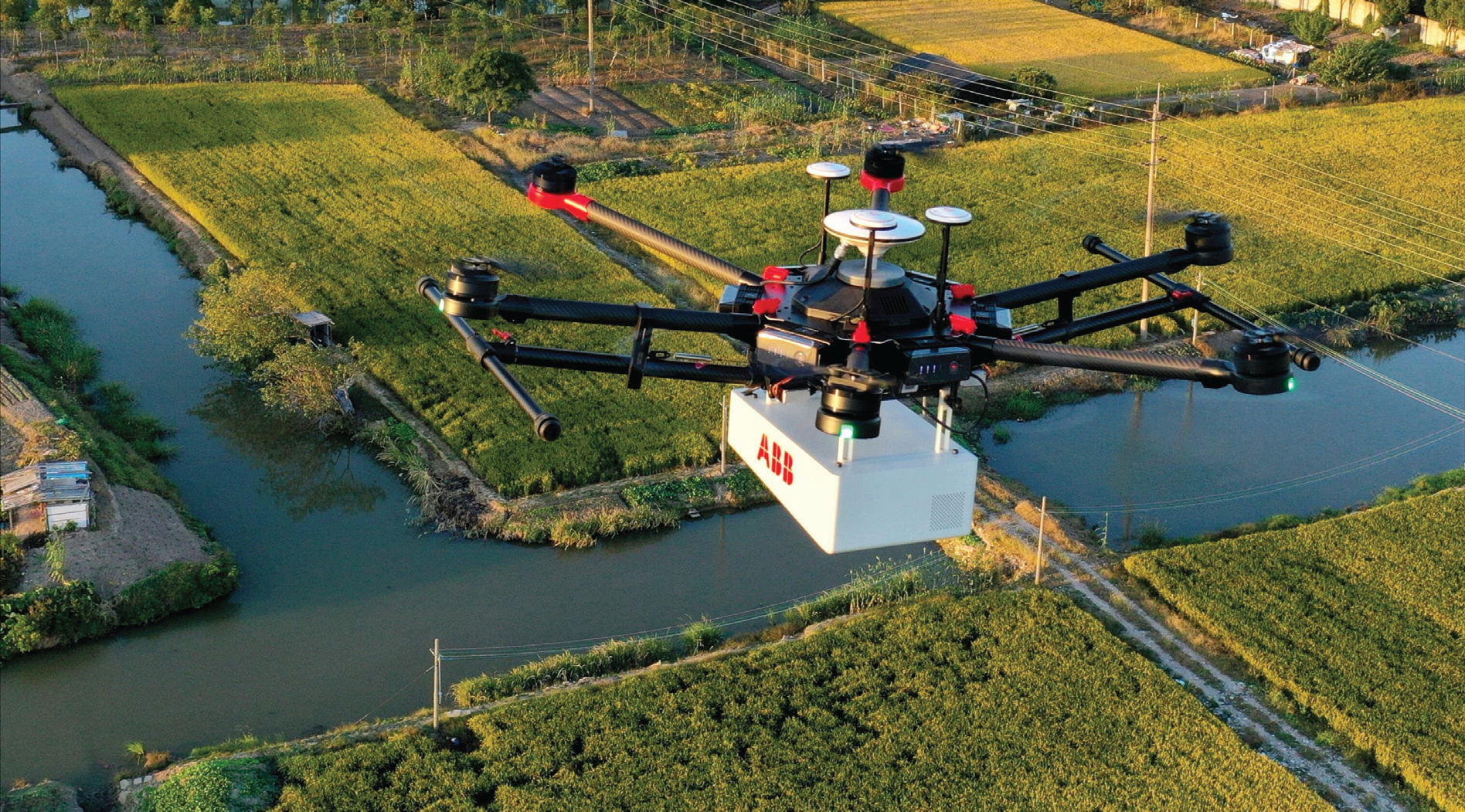The People’s Gas Light and Coke Company (People’s Gas) is a natural gas provider for Chicago. Using ABB’s innovative gas leak detection and quantification system, the company has successfully reduced its methane emissions while simultaneously leveraging accurate leak detection to boost gas pipeline safety.

Peoples Gas vehicles outfitted with ABB’s MobileGuard lead detection system. Image Credit: ABB Measurement & Analytics
People’s Gas serves over 878,000 customers and is responsible for more than 4500 miles of gas pipeline spread throughout its service territory.
With such wide coverage and so many customers, the company must ensure the rapid detection, localization and quantification of pipeline leaks to both limit methane emissions and ensure the safety of Chicago’s citizens.
People’s Gas is currently implementing an ongoing System Modernization Program (SMP), and as part of this, the company has approved a pilot program designed to employ advanced gas leak detection.
People’s Gas opted to employ ABB’s MobileGuard™ gas leak detection system as a key part of this project, leveraging the power and long-range of vehicle-based system.
The system features ABB’s LGR-ICOS™ methane/ethane analyzer, a global positioning system (GPS) unit, a sonic anemometer and advanced software designed to detect leaks, map their location and quantify emissions.
Increased Range and Sensitivity
The leak detection system previously utilized by People’s Gas included a combination of a vehicle methane leak detector (VMLD), remote methane leak detector (RMLD) and combustible gas indicator (CGI).
The VMLD is fitted onto a vehicle and offers a range of 1 to 1000 ppm/m with a sensitivity of 0.1 ppm. The RMLD is able to detect gas up to 100 feet away, reporting in parts per million-meter (ppm-m).
The replacement of this system with ABB’s MobileGuard™ technology has led to a substantial improvement in terms of range and sensitivity. Detection is now possible down to single parts per billion at ranges of up to 600 feet.
The system’s rapid leak detection has enabled leak surveys to be conducted at standard driving speeds. It is also able to report both methane and ethane, allowing it to effectively eliminate false positives.
Most crucially, the system can collate measurements of gas concentration, vehicle locations, and wind velocity to pinpoint the precise source location and relative size of a potential natural gas leak before displaying the results using Google Earth’s map capabilities.
Collected data is integrated into the user’s geospatial information system (GIS), enabling comprehensive analysis and allowing the exact location of leaks to be determined with improved speed and accuracy.

Recently released HoverGuard™ is a drone-based version of ABB’s leak detection system. Image Credit: ABB Measurement & Analytics
Making the Most of the Data
With the capacity to pinpoint the source of emissions via MobileGuard™, People’s Gas has been able to effectively screen out other (non-pipeline) sources of methane and achieve an accurate estimate of lost gas over time.
The ability to use actual field measurements to quantify the impact of replacement programs on methane emissions offers a convincing and appealing alternative to reliance on industry averages by pipe size.
The use of MobileGuard™ technology has allowed People’s Gas to leverage accurate data to make more informed construction planning decisions, helping lower methane emissions faster. These planning decisions will also be incorporated into the SMP, informing further strategic decisions.
Results of surveys undertaken in 2018 allowed People’s Gas to prioritize mitigation activities in 2019, with further results from 2019 surveys supporting more affective prioritization in 2020. A process the company intends to continue in the future.
In 2020, the company evaluated neighborhoods that had been surveyed prior to the commencement of leak mitigation work, discovering post-construction that emissions had been practically eliminated with reductions of 95% to 100%.
Peoples Gas’ first priority when planning construction is safety, but we can now overlay additional information gained from the advanced leak detection and quantification technology to prioritize neighborhoods with greater emissions and at higher risks.
Mark Kinzle, Director of Operations Strategy and Performance
Future Plans and Next Steps
People’s Gas intends to continue its use of the MobileGuard™ system, even opting to terminate the pilot program a year early to directly incorporate the technology into its SMP.
People’s Gas is currently contemplating and evaluating other use cases, including uprating its gas mains and large-scale foreign odor evaluation processes.

This information has been sourced, reviewed and adapted from materials provided by ABB Measurement & Analytics.
For more information on this source, please visit ABB Measurement & Analytics.